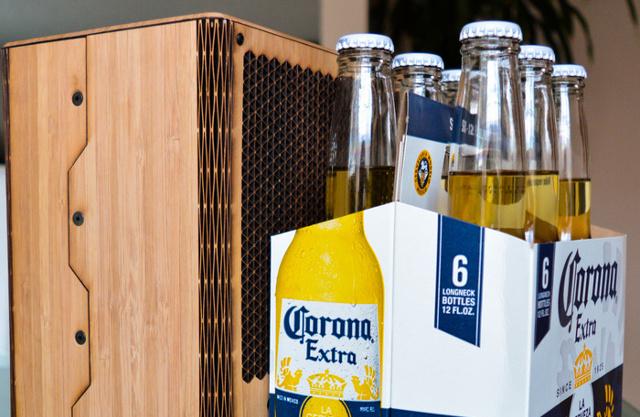
The company behind the computer, One Technology, hopes to bring the svelte back into gaming, and bucks the tired trend of gracing every available nook and cranny with whatever color of neon LED makes its machines look the most “extreme.” The PC will draw its sex appeal instead from real wood accents, a laser-cut lattice work for venting, and components that give it all the capability you’ll need for heavy gaming sessions.
Related: Mini-PCs are a real threat to the traditional tower desktop
According to the company’s Kickstarter, you can expect the baseline Phantom One to come equipped with an Intel Core i7 4790K, 16GB of high performance memory, a 4GB GTX 970, and 128GB of available storage from an internal SSD.
Connectivity options will include eight USB 3.0 ports, two USB 2.0, one DP 1.2, one HDMI, and two DVI-D out. Costs are expected to reach about $1650 for the regular black acrylic load-out, while opting for the bamboo version will only tack on an extra $50 to the MSRP in total.
No word yet on when we can expect the box to land on our desks (the project will need to be fully funded before production can begin), and so far the Kickstarter only has about $205 raised on the site. Granted they’ve only had the plea active for about three days now, and we’re sure as their story makes the rounds there will be plenty more people who want to help this dream become a reality.



